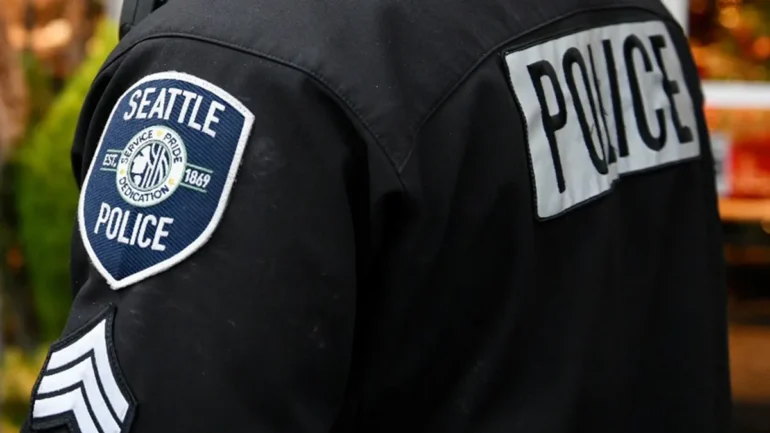In April 2025, Seattle’s City Council made a bold move by unanimously passing Resolution 32167, officially cutting ties with the “Defund the Police” movement that had gripped the city and the nation since 2020. Led by Councilmember Rob Saka, this decision marks a significant shift in Seattle’s approach to public safety, acknowledging the failures of defunding efforts and recommitting to a stronger, reformed police force. The resolution has sparked both praise and criticism, reflecting the complex debate over policing in America’s progressive cities.
The Rise and Fall of “Defund the Police”
The “Defund the Police” movement surged after the 2020 killing of George Floyd in Minneapolis, when protests against police brutality swept the country. In Seattle, a liberal stronghold, the City Council embraced the movement, slashing the police budget by about 18% in 2020, far short of the 50% cut activists demanded. The city also saw the creation of the Capitol Hill Autonomous Zone (CHAZ), a police-free area that highlighted the intensity of calls for change.
However, the aftermath was troubling. Seattle’s police department faced an exodus of officers, dropping to its lowest staffing levels in decades. Crime rates climbed, with Capitol Hill alone averaging 29 violent crimes and nearly 200 property crimes per month in 2025. Many residents, like Eli Hoshor, reported feeling unsafe, pointing to persistent issues like homeless encampments near schools. The movement, once seen as a path to reform, was increasingly viewed as divisive and ineffective.
Resolution 32167: A New Direction
Councilmember Rob Saka, a Black Air Force veteran, introduced Resolution 32167 in March 2025 to reverse the city’s prior commitment to defunding. “This resolution reverses any prior commitment or pledge by past councils to defund or abolish the police,” Saka stated, emphasizing that such policies drove officers away and fractured communities. The resolution passed on April 1, 2025, with full support from the council, signaling a unified rejection of the defund rhetoric.
The resolution doesn’t just undo past policies—it celebrates Seattle’s progress in police reform. Since a 2012 federal consent decree addressing excessive force and biased policing, the Seattle Police Department (SPD) has reduced use-of-force incidents in crisis interventions by 48% and overhauled officer training. The city has also diversified its public safety approach, launching the CARE Crisis Response Team to handle behavioral health crises alongside police. Mayor Bruce Harrell praised these efforts, noting that SPD hired more officers in 2024 than it lost, with applications now soaring.
Saka, speaking as a Black man, criticized the defund movement for claiming to represent Black communities without their full input. “That commitment to defund the police was made purportedly in the best interest of Black and brown communities, when [there was] not one Black person on the council at the time,” he said. “Black and brown communities do not need white saviors.” His words resonate with those who felt the movement oversimplified complex issues.
A Step Toward Ending Federal Oversight
The resolution also moves Seattle closer to ending a decade-long federal consent decree. By requesting the City Attorney to submit SPD’s remaining policies for review, the council aims to prove the department’s compliance with federal standards. This step, supported by Black councilmembers like Joy Hollingsworth, is seen as a milestone in addressing biased policing while maintaining public safety.
Controversy and Criticism
Not everyone supports the resolution. Critics argue it glosses over ongoing issues within SPD, including allegations of internal chaos and corruption. A leaked email from SPD’s Chief Operating Officer Brian Maxey claimed the department is “increasingly unstable,” citing conflicts of interest and low morale. Some activists, like those from The Urbanist, called the resolution a “non-story,” arguing that SPD was never truly defunded and that police brutality remains unaddressed. They point out that SPD’s budget has risen to $451.6 million in 2025, higher than pre-2020 levels.
What’s Next for Seattle?
Seattle’s rejection of “Defund the Police” reflects a broader trend in Democratic cities, where leaders are distancing themselves from the slogan amid rising crime and public frustration. The city is now focused on a multi-tiered public safety strategy, balancing police reform with community-based solutions like the CARE program. However, challenges remain—staffing shortages, crime trends, and distrust in SPD persist.
Resolution 32167 is a turning point, but it’s not the end of the conversation. As Seattle navigates this new path, the question remains: Can the city rebuild trust and safety without repeating past mistakes? For now, leaders like Saka and Harrell are betting on a reformed police force and a united community to move forward.
